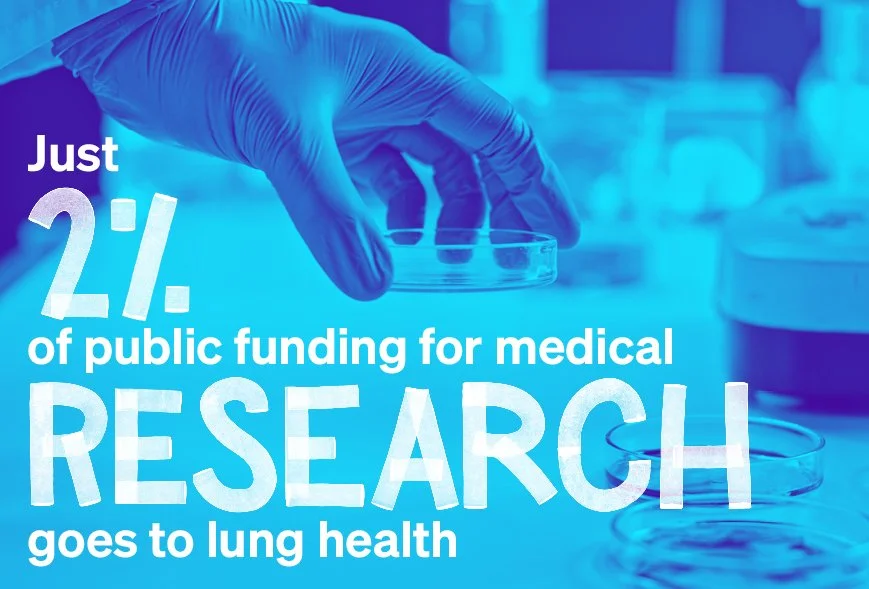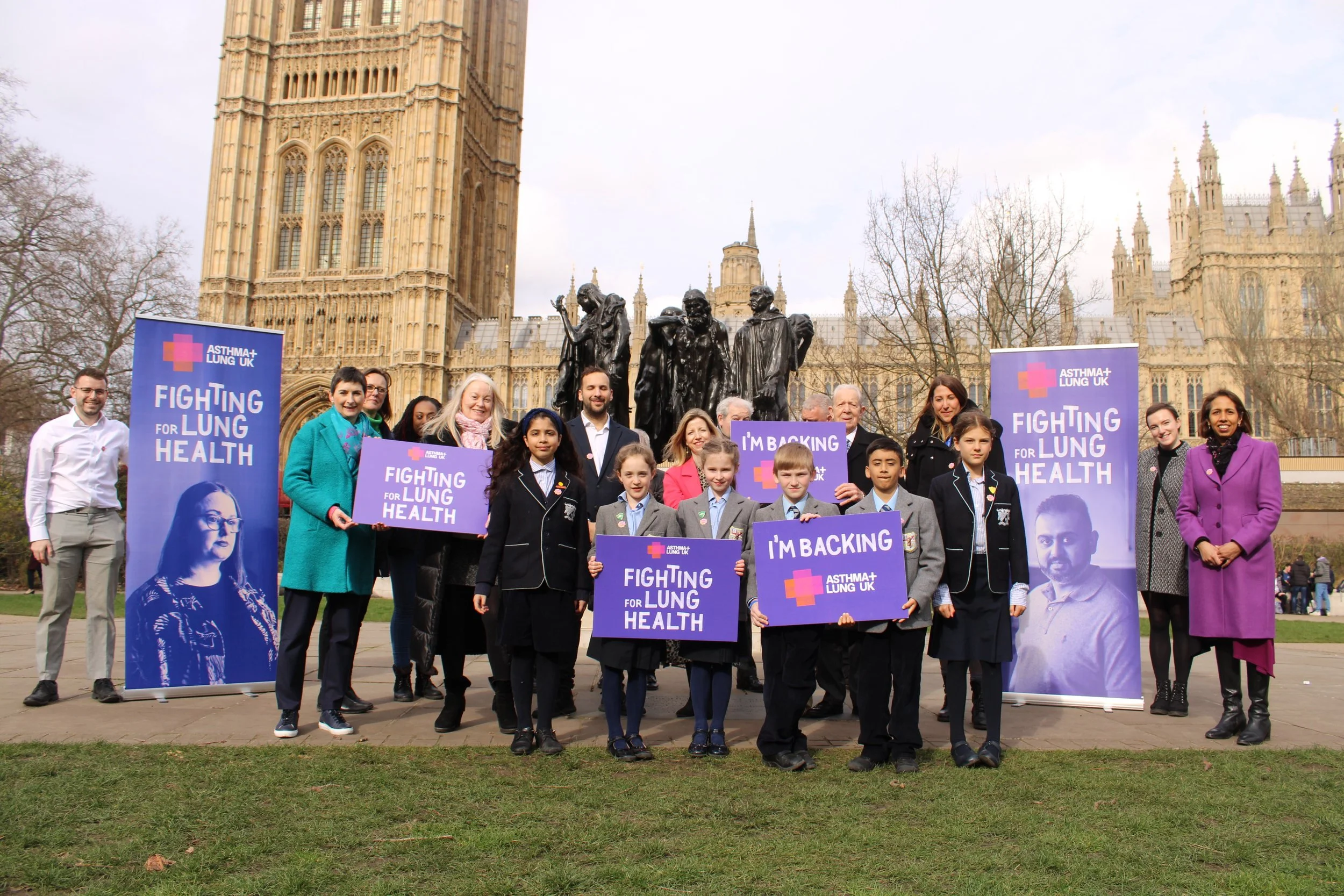Shaping the future of Respiratory Research and Innovation
For years the respiratory life sciences have been underfunded, despite lung conditions affecting one in five people in the UK and being the third biggest cause of death. Our CEO, Sarah Woolnough explains what we believe needs to change and sets out some of the ideas for improving research and innovation in respiratory and calls for your feedback.
Spending on respiratory by public funders continues to be disproportionately low compared to the significant impact of the disease on the population and the high cost to the economy. This underinvestment has resulted in a lack of fast and accurate diagnostic tools, the stalling of the respiratory pipeline with few new treatments in the past 20 years, and it has denied patients access to the proper tools to self-manage their condition.
Increased public funding would save lives
To improve the lives of patients, we believe in creating a shared research mission to prevent, diagnose, manage and treat respiratory disease. That’s why we have been working to bring together leaders in the NHS, government, industry and the tech sector to align on how best to deliver the greatest impact on health outcomes and R&D growth, building on the excellent framework that the UK already provides.
We need to see an increase of £100 million per year of public funding. That’s an increase from 2% of health research spend to 6%, totalling £150m and bringing funding in line with the proportionate impact of respiratory disease on the nation’s health.
This level of sustained investment would contribute to reducing respiratory morbidity and mortality by 20% - potentially saving over 15,000 lives and preventing 200,000 emergency admissions every year.[i] Additionally, such investment in respiratory science would cement the UK’s place as a global life science leader, creating jobs and improving the UK economy.
We have developed ideas of where we need to see increased investment and are keen to hear your thoughts in the Comments section below.
Life Science Vision: Now is the Time to Come Together
In July 2021, the Government prioritised respiratory disease as one of its seven healthcare missions in its Life Sciences Vision. This a step forward, but more needs to be done to ensure that respiratory disease receives the same focus as the other priority health conditions such as mental health, oncology, and dementia.
To develop the ideas of the future that can transform respiratory science and deliver the best possible outcomes for patients, we brought together key academics and policymakers at a virtual meeting earlier this year. The meeting represented an exciting moment for respiratory life sciences and in attendance were George Freeman MP (Minister for Science, Research, and Innovation), Sir John Bell (Oxford Regius Professor), Sir Jonathan Van Tam (Deputy Chief Medical Officer), along with a host of respiratory academics and key life science funders.
Transforming the respiratory research landscape
From this meeting, and other partner engagements, came a host of practical ideas which will make it possible for us to reduce respiratory morbidity and mortality by 20%.
With the right investment the UK can be the best place to do respiratory research and innovation by joining up our unique datasets; establishing better and earlier diagnosis; improving drug development; applying digital technology to self-management and trialling interventions to prevent poor respiratory outcomes. Additionally, these ambitions can be delivered while improving outcomes for those in the poorest communities that are carrying the heaviest burden of lung conditions.
Since the roundtable, we have developed our ideas further and refined them into specific asks across the five key areas:
1. Platform: Building a Platform for Respiratory Research and Innovation
- Goal: Make the UK the best place to do respiratory research and innovation by joining up our unique datasets and including respiratory biomarkers in large scale cohort studies.
2. Diagnosis: National Diagnostics Centre for Respiratory Disease
- Goal: Develop objective tests that can accurately differentiate between respiratory diseases and can be measured remotely through partnering with health technology companies.
3. Treatments: Centre for Experimental Lung Medicine
- Goal: Accelerate the development of new therapeutic target product profiles and make the UK the best place for large-scale digital clinical trials.
4. Management: Centre for Digital Management of Respiratory Disease
- Goal: Drive health innovation and attract commercial investment by partnering with the NHS to enable the testing and implementation of disease management optimisation solutions.
5. Prevention: Centre for Prevention of Respiratory Disease
- Goal: Reduce emergency admissions by 20% in the 20 worst affected areas through targeting underlying causes of respiratory morbidity and mortality.
We need your thoughts and action
These ideas represent ambitious and exciting first steps to deliver on the Life Science Vision. Our draft document sets these ideas out in more detail, how they might be implemented in the coming years and the technologies that could be employed.
However, these are only ideas. To transform respiratory science we need your perspective and more importantly, your action.
So please share your views by leaving a comment below or connect with us directly at research@asthmaandlung.org.uk.
[i] A+LUK analysis of data emergency admissions data via NHS Digital, Public Health Scotland, NHS Wales and Department of Health (Northern Ireland).
Every five minutes someone dies from a lung condition.
Yet only 2% of public funding for medical research goes to lung health. How can something so vital be so underfunded?
Together we can change this.








